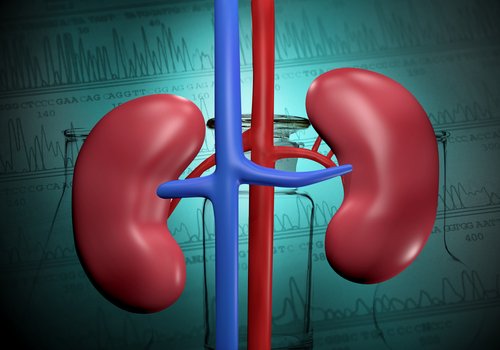Ratio of Blood PTX3, Anti-PTX3 Auto-antibodies May Predict Lupus Nephritis Activity, Study Finds

A large Chinese cohort study has shown that anti-pentraxin 3 (PTX3) auto-antibodies were less prevalent in lupus nephritis patients with active disease than in systemic lupus erythematosus (SLE) patients without renal involvement, and was linked to less severe renal damage. These findings confirm the protective role of anti-PTX3 auto-antibodies in lupus nephritis.
The study, “Anti-pentraxin 3 auto-antibodies might be protective in lupus nephritis: a large cohort study” appeared in the journal Renal Failure.
It is unclear what causes lupus nephritis, a common manifestation of SLE. Lupus nephritis is believed to play a pivotal role in the production of auto-antibodies as response to impaired clearance. In turn, auto-antibodies are believed to help trigger lupus nephritis. Still, some of these antibodies are known to have anti-inflammatory activities and to protect kidney tissue from damage.
A previous study from the same researchers showed that lupus nephritis patients had increased blood levels and renal deposition of a protein called PTX3. Other studies have suggested that anti-PTX3 antibodies could play a protective role against renal immune inflammatory damage.
In the current study, the team Peking University First Hospital evaluated a large cohort of patients, including 196 active lupus nephritis patients, 150 SLE patients without clinical renal involvement, and 100 healthy controls. Blood levels of auto-antibodies against PTX3 were determined and compared between groups, and with clinical parameters of the disease.
About 41 percent of the SLE patients without renal involvement had increased levels of anti-PTX3 auto-antibodies, compared to 20 percent of those with lupus nephritis. Interestingly, these auto-antibodies were found to be higher in male lupus nephritis patients than female patients. Hormonal specific involvement in disease development could partly explain this, authors said.
Researchers found that patients who presented negative values of these auto-antibodies and high blood levels of PTX3 protein were the ones with increased signs of kidney damage, including higher proteinuria and higher blood creatinine. This suggested that the balance between this protein and its auto-antibodies is an important factor in the nephritis process.
“The combination of serum PTX3 level and anti-PTX3 auto-antibodies could predict lupus nephritis activity better, not the whole SLE disease activity as the SLEDAI [Systemic Lupus Erythematosus Disease Activity Index] scores were comparable between the two groups,” the authors wrote. “It might also highlight the protective effect of anti-PTX3 auto-antibodies indirectly in human lupus nephritis.”





